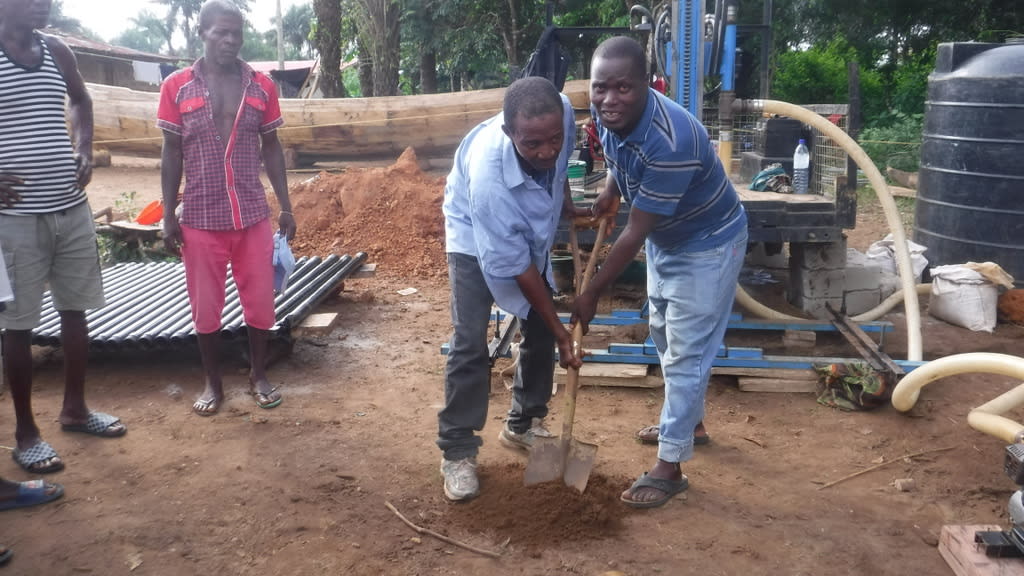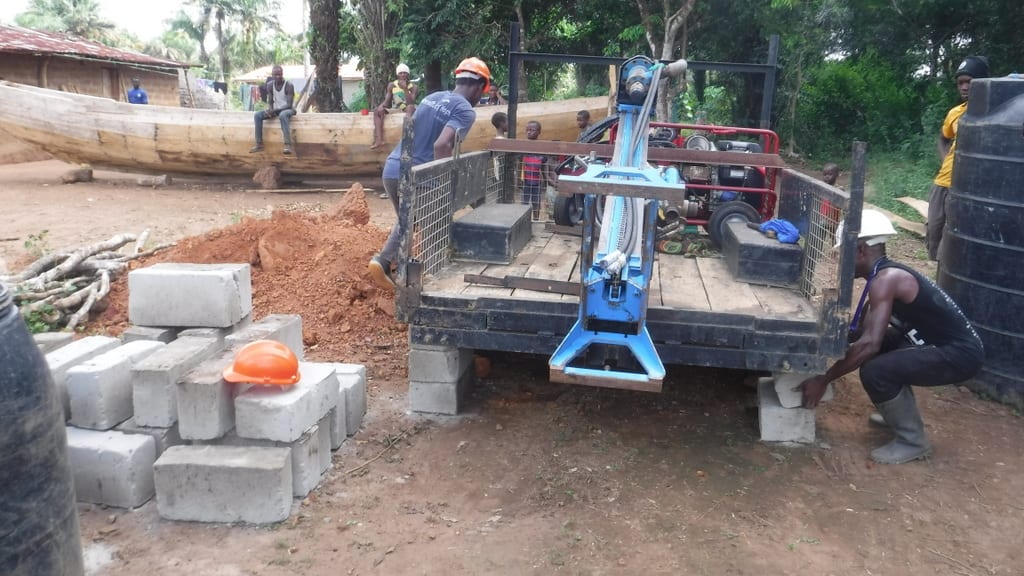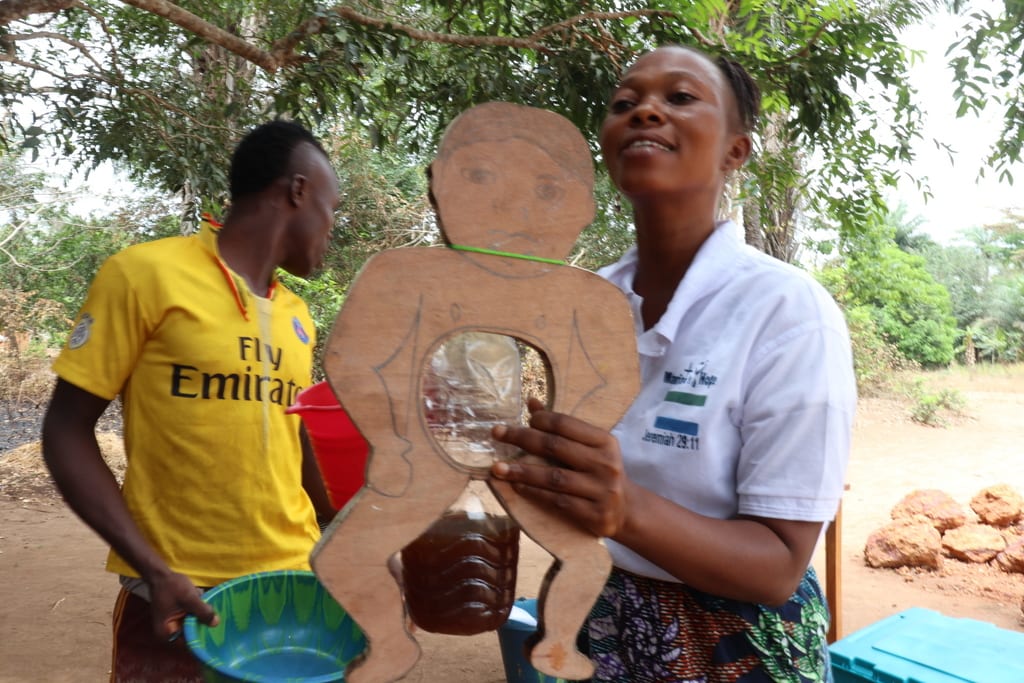Deep inside Lokomasama Chiefdom is Kamayea, a village that was settled by fisherpeople. Centuries later, the founding tribe has been taken over by the Temne and Susu tribes. Kamayea is a rural community with an ample supply of fresh fruits and vegetables. Lokomasama is best known for its vast fertile swampland, making it a major producer of rice in the country.
The hard labor involved in planting rice has driven a majority of the youth away from the profession and led them to ride motorcycle taxis for work instead. The transformation from mud houses to cement blocks and wooden windows to glass windows is slowly happening. Homes here used to have grass roofs, but with changing times they have converted to zinc roofing.
Susu Gospel Church started in March of 2016. It started with 7 members and 1 pastor that was sharing his time with another Susu Gospel Church in Lungi Town. Some 3 years later, the population has increased to 100 congregants. Families come from surrounding villages to attend the church.
We have worked with this pastor on several projects. He is very active and very thorough when it comes to helping both his community and our team in achieving our work. We are really excited that he has planted a church in this village, as this will bring further development. This church is also known for starting schools, so we are awaiting the announcement that they will start a preschool in the church.
But the church and the nearby community lack a water point. There are 2 streams that people fetch water at, and a protected well located on the other side of the village. The well was constructed in 1981. It was never fenced and the well pad has cracked over the years. The first casing has started to show above the ground and the organization that constructed the well has long since stopped working in the Lokomasama Chiefdom. As a result, the quality of the water from the well is compromised.
Due to that and crowding at the well, many people travel about 25 minutes to reach the nearest stream for water instead. The stream is hidden under large trees that keep the water cool to the touch, even in the scorching dry season sun. The water is praised by the whole village as a good source of drinking water, but it is in fact highly contaminated. People bathe and launder their clothes in the stream, exposing it to chemicals. Furthermore, since it is an unprotected stream, it is open to nearby farm runoff and other contaminants that cause waterborne diseases.
Salamatu Bangura
One of the people we met during a visit to the community was Salamatu Bangura, a 19-year-old mother of 1 girl. Her school career ended when she was 14 years old, but in the village, she was then considered a grown woman ready to be somebody's bride. But for Salamatu, the reason she left was due to the fact at the age of 7 she fell ill and developed kyphosis (the forward rounding of the spine). She was teased throughout school and it interfered with her studies so much that her parents decided to remove her from school.

This robbed Salamatu of the opportunity to get an education and better her own life. Now she cares for her daughter. Salamatu shared that her priority is to ensure that her daughter is healthy, but this is difficult for her to do due to the physical limitations caused by her disability. Salamatu cannot perform any hard work, so her duties are limited to cooking and light cleaning around the house.
Salamatu cannot even go out to fetch water from the swamp. Worse yet, she struggles to find people who will help her get water because the source is so far from her home. A new well can change that.
"Not having enough clean drinking water has great detrimental effects that our people never think about," she said.
"If a water well is next to my house, I can ask somebody to easily fetch water for me."
What we can do:
New Well
We will be drilling a well at Susu Gospel Church. This project will relieve the people here of the heavy control and rationing they're encountering at the private well.
Our team will drive over the LS200 mud rotary drill rig and set up camp for a couple of nights. Once the well is drilled to a sufficient water column, it will be cased, developed, and then tested. If these tests are positive, our mechanics will install a new India Mark II pump.
This community has been pushed to the swamp for their water. By drilling this borehole, Kamayea Community will be provided with plenty of accessible, clean drinking water.
Training
We will offer 3 consecutive days of hygiene and sanitation training in this community.
Community members will learn how to make a handsfree handwashing station called a tippy-tap. We will then use these tippy taps for handwashing demonstrations, as well as teach about other tools like dishracks and the importance of properly penning in animals to keep them away from people's food and water. We will also highlight the need to keep latrines clean, among many other topics.
These training sessions will also strengthen a water committee that will manage and maintain this new well. This committee will enforce proper behavior and report to our team whenever they need our help in solving a serious problem, like a pump breakdown.

 Borehole Well and Hand Pump
Borehole Well and Hand Pump
 Rehabilitation Project
Rehabilitation Project
































